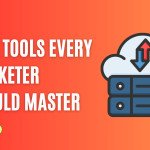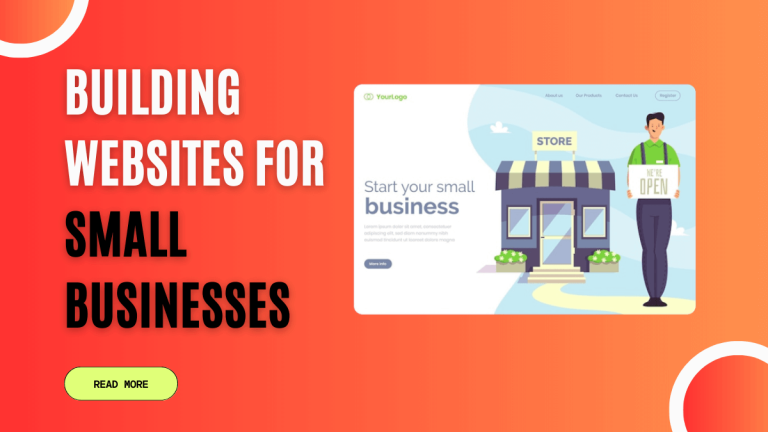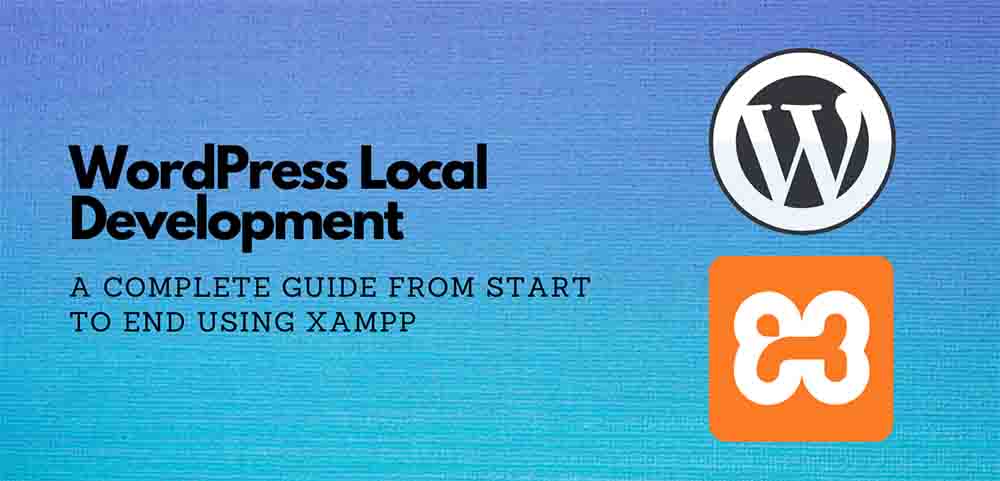As the business landscape evolves, small businesses must adapt to the digital revolution. Building a website is fundamental to establishing a strong online presence and staying competitive in the market. In this article, we will delve into the key elements that contribute to creating an effective website for small businesses, ensuring it becomes a valuable asset for growth and success.
Understanding the Importance of a Website for Small Businesses
The Shift to Online Platforms
In recent years, consumer behavior has shifted dramatically toward online channels. With the convenience of the internet, customers now prefer to research products and services online before making purchasing decisions. A website acts as a digital storefront, allowing small businesses to showcase their offerings 24/7 and reach potential customers beyond their physical location.
The Benefits of a Website
Having a website offers several advantages for small businesses. It enhances credibility, as customers tend to trust businesses with an online presence. Additionally, a well-optimized website can improve search engine rankings, driving organic traffic to the site. Moreover, websites provide an avenue for businesses to engage with their audience through blogs, newsletters, and social media integration.
Defining Your Website Goals
Before diving into the website-building process, you must define clear objectives for your online platform.
Identifying Target Audience
Understanding your target audience is crucial for tailoring your website’s content and design to meet their needs. Conduct thorough market research to identify the demographics, preferences, and pain points of your potential customers.
Setting Clear Objectives
Outline specific and measurable goals for your website. Whether it’s generating leads, increasing sales, or building brand awareness, having well-defined objectives will guide the development process.
Choosing the Right Domain and Hosting
Selecting a Domain Name
Choosing an appropriate domain name is the first step toward building your online identity. Opt for a name that reflects your business and is easy to remember and spell.
Reliable Hosting Options
Selecting a reliable hosting provider is crucial for ensuring your website’s stability and performance. Consider factors such as server uptime, customer support, and scalability when choosing a hosting service.
Designing an Engaging Website
User-Friendly Navigation
Intuitive navigation is essential to keep visitors engaged and help them find the information they seek quickly. Organize your website’s menu and structure in a logical manner.
Captivating Visuals and Branding
Design plays a significant role in user experience. Use appealing visuals and incorporate your branding elements to create a memorable and cohesive look for your website.
Mobile Responsiveness
With the increasing use of mobile devices, it’s crucial to ensure your website is fully responsive and adapts seamlessly to different screen sizes.
Content is King: Crafting Compelling Website Content
Writing Engaging Copy
Compelling and persuasive copywriting is essential for capturing visitors’ attention and convincing them to take action. Focus on communicating the unique value proposition of your products or services.
Read more about the Top 5 Free AI Content Writing Software You Should Know.
Incorporating Calls-to-Action (CTAs)
Strategically place calls to action throughout your website to guide visitors toward the desired actions, such as making a purchase or subscribing to a newsletter.
Utilizing SEO Keywords
Incorporate relevant keywords naturally into your content to enhance search engine visibility and attract organic traffic.
Integrating E-commerce Solutions (If Applicable)
Setting Up Online Stores
For businesses selling products, setting up an e-commerce store is essential. Ensure a seamless shopping experience for customers with easy navigation and secure checkout options.

Secure Payment Gateways
Implement secure payment gateways to instill confidence in customers and protect their financial information during transactions.
Implementing Search Engine Optimization (SEO) Strategies
On-Page SEO
Optimize each page of your website with relevant title tags, meta descriptions, and header tags to improve search engine rankings.
Off-Page SEO
Build high-quality backlinks from reputable websites to improve your website’s authority and credibility in the eyes of search engines.
Read more about Top 10 SEO Tips for Novices: Boost Your Online Visibility.
Adding Social Media Integration
Building Social Media Presence
Leverage social media platforms to connect with your audience, share valuable content, and build a loyal customer base.
Social Sharing Buttons
Integrate social sharing buttons on your website to encourage visitors to share your content, expanding your reach organically.
Ensuring Website Security
SSL Certificates
Secure your website with SSL certificates to encrypt data and protect it from potential cyber threats.

Regular Backups
Perform regular backups of your website to safeguard against data loss in case of unexpected incidents.
Read more about the 5 Best Backup Plugins for WordPress.
Testing and Quality Assurance
Checking for Bugs and Errors
Thoroughly test your website for any bugs or errors, ensuring a smooth and glitch-free user experience.
Cross-Browser Compatibility
Ensure your website functions correctly on various web browsers to cater to a broader audience.
Launching Your Website
Pre-Launch Checklist
Before launching your website, go through a comprehensive checklist to verify all aspects are in place for a successful launch.
Post-Launch Promotion
Promote your website through social media, email marketing, and online advertisements to drive traffic and gain traction.
Monitoring Website Performance
Analyzing Traffic with Google Analytics
Use tools like Google Analytics to monitor website traffic, and user behavior, and identify areas for improvement.

Measuring Conversion Rates
Track conversions to assess the effectiveness of your website in achieving its defined goals.
Keeping Your Website Updated
Fresh Content Updates
Regularly update your website with fresh and relevant content to keep visitors engaged and informed.
Software and Security Updates
Stay on top of software and security updates to protect your website from potential vulnerabilities.
Conclusion
Building a website for your small business is a powerful step toward success in the digital world. A well-designed website can expand your reach, enhance credibility, and drive business growth. By following the steps and strategies outlined in this article, you can create a compelling online platform that attracts customers and fosters long-term success.
FAQs
Building a website has become more accessible with user-friendly website builders and content management systems. While some technical knowledge may be helpful, many tools simplify the process, allowing business owners to create websites without extensive coding skills.
The cost of building a website varies depending on factors like complexity, features, and whether you hire a professional developer. Website builders offer affordable options, while custom-built websites may have higher upfront costs.
Yes, search engine optimization (SEO) is crucial to improve your website’s visibility in search engine results. It helps potential customers find your business online and increases organic traffic to your website.
Absolutely! If your small business sells products, you can set up an e-commerce store on your website. This allows customers to browse and purchase products online, expanding your business reach.
If you experience technical issues, contact your website hosting provider’s support team. They can assist with troubleshooting and resolving any problems you encounter.







